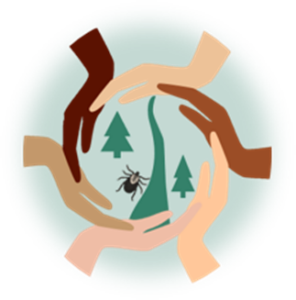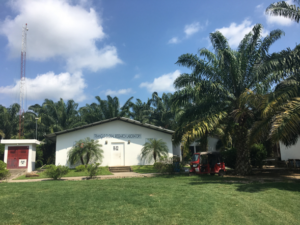Faculty One Health Pilot Projects
CSU’s One Health Institute funded two faculty One Health pilot projects in 2024 to address One Health issues in a community-based project. The One Health Institute funds faculty pilot awards annually.
The faculty pilot projects for this year focus on addressing an infectious disease or health issue that affects the health of people, animals and the environment in a community-based project.
Two interdisciplinary research teams are working to implement the One Health approach to better understand and develop solution-oriented approaches aimed at mitigating, managing and preparing communities to respond to health and infectious disease threats in the following projects.

Tackling Tick-Borne Diseases in Colorado Trails
Colorado’s trail systems are renowned for their diversity and popularity, attracting millions of outdoor enthusiasts annually. These trails, however, are also critical habitats for ticks, which are vectors for various zoonotic diseases including Rocky Mountain spotted fever and Colorado tick fever. Given the frequent interaction between humans, wildlife, and domestic animals on these trails, there is a heightened risk of tick-borne diseases (TBDs). To address this, we propose a passive tick and TBD surveillance initiative that encourages hikers to submit tick samples at trailheads in Northern Colorado. We invite all trail users to participate in this vital effort by participating in our surveys and submitting tick samples at designated collection points located at the trailheads. The success of this program depends heavily on the active participation of hikers, Colorado State University students and researchers, and recreational and wildlife agencies, which are crucial for the sustainability of this surveillance effort.
The project team includes assistant professors Dr. Saavedra-Rodriguez and Dr. Hemming-Schroeder, research scientist Dr. Emma Harris, instructor Dr. Scorza from the College of Veterinary Medicine and Biomedical Sciences (CVMBS), and Dr. Seth Davis from the Warner College of Natural Resources. Together, they aim to map tick populations, monitor pathogen prevalence, and collect data on the trails’ landscape, environmental factors, and visitor behaviors. This comprehensive strategy will provide essential insights into the dynamics of TBDs on Colorado’s trails, guiding future efforts in disease control and public awareness. Additionally, the initiative will strengthen community response to zoonotic diseases, exemplifying the One Health concept by promoting interdisciplinary collaboration and public involvement.
Principal Investigator:
Karla Saavedra Rodriguez, Ph.D.
Collaborators:
Seth Davis, Ph.D.
Elizabeth Hemming-Schroeder, Ph.D.
Emma Harris, Ph.D.
Valeria Scorza, Ph.D.
Colorado Parks and Wildlife
Colorado Dept. of Public Health and Environment
Colorado National Parks
Larimer County Parks

Combatting Leptospirosis in Rural Guatemala
Leptospirosis, prevalent in tropical and underserved communities, lacks comprehensive data on its risks, notably in Southwest Guatemala’s Trifinio region. This project aims to determine zoonotic disease prevalence in the region, where residents face heightened risk factors including close animal contact, limited access to clean water, and inadequate rodent control. With a high incidence of acute illness potentially linked to Leptospira, researchers hypothesize Leptospirosis poses a significant health threat to both humans and animals. Through a One Health approach, the study will screen individuals and animals for Leptospira antibodies, assess the environmental presence of the bacteria, and utilize geographic information systems to identify factors leading to transmission.
This research will provide insights into leptospirosis risk drivers and burdens within the community. The interdisciplinary team, with expertise in zoonotic diseases and ecological dynamics, aims to generate actionable information to elevate Leptospirosis from a neglected disease to a priority for regional and global health initiatives.


